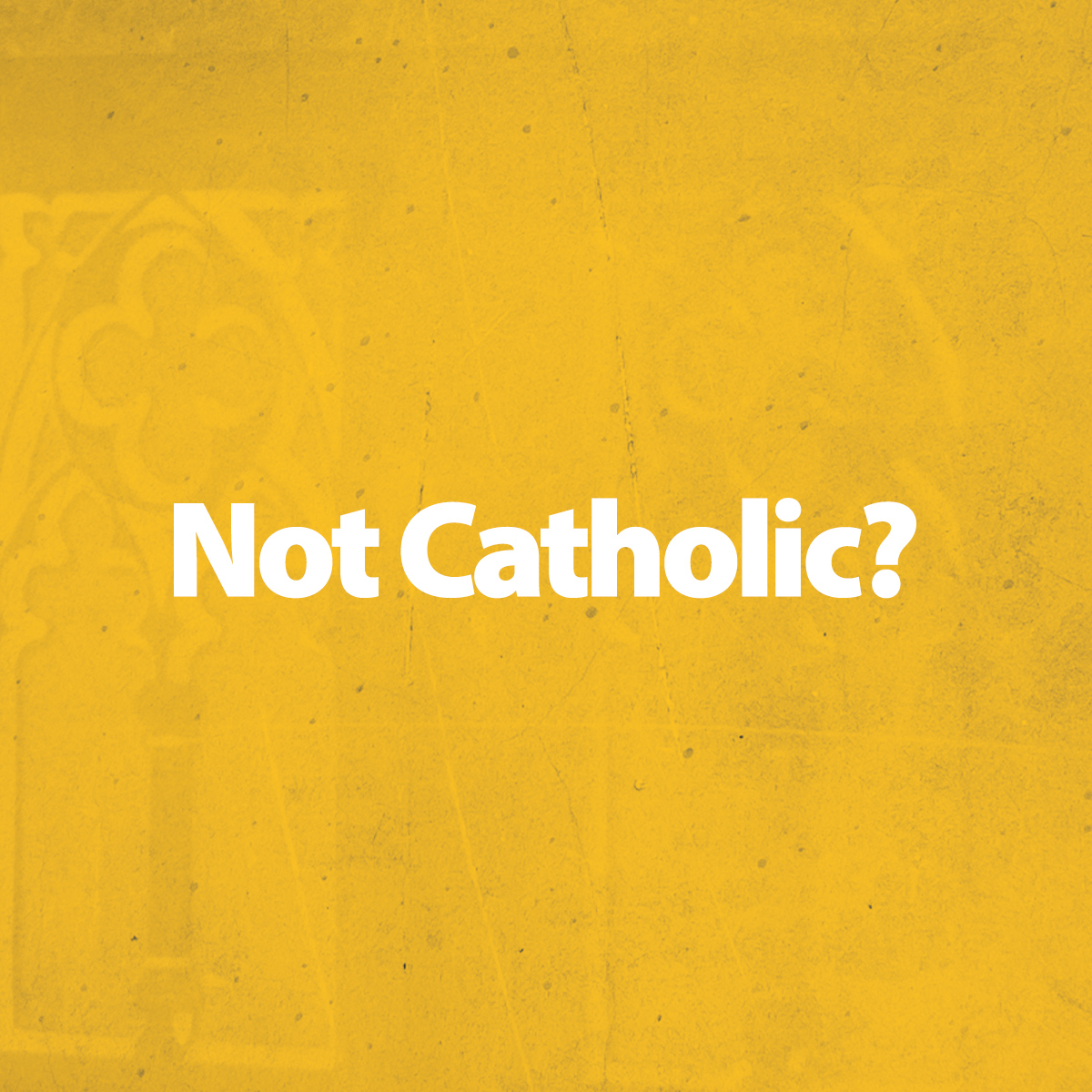If you are reading this page, it is likely that you or your fiancé is not a Catholic. Perhaps one of you belongs to another Christian denomination, a different religion such as Islam, Judaism, or Hinduism, or perhaps one of you has no religious affiliation at all.
The Church embraces all people of good will and is glad to share with you the wisdom of its tradition about marriage. We welcome you and rejoice with you.
The Catholic Church’s primary concern for you is that together you build a strong, faithful, and happy marriage, worthy of the vocation we believe God calls you to live. Because of the central role that faith plays in a marriage, spouses with different religious beliefs can encounter conflicts that may affect their relationship.
Differences in religious belief and practice will affect many aspects of married life, not only where they will worship. Decisions such as how to raise and educate children, how to spend time and money, making and keeping friends and professional networks, relationships with extended family, and where a couple chooses to live can all be influenced by religious affiliation.
Points of potential disagreement and conflict caused by differences in faith, can add up as the marriage progresses. We say this not to discourage you from marriage but to encourage you to discuss and consider now how your differences may affect your relationship into the future.
Work toward a common understanding about how you will practice and live your respective faiths and how you will live with the differences that religion brings to your relationship. We encourage you to practice your faiths. Find in them what you have in common spiritually so that from your religious beliefs you can nourish your relationship, and draw guidance and strength.
As you read this, you may wonder how the Catholic Church regards non-Catholics who marry in the Church and what is expected of them. The following questions and answers should answer some of your concerns. If you want to know more or find anything confusing, talk to your mentor couple or the priest or deacon helping you prepare for marriage.
Frequently Asked Questions about Catholic Marriage Preparation
1. My fiancé is Catholic; I am not Catholic. Will I be expected to become Catholic?
The Catholic Church does not pressure anyone to become a member. The practice of one’s faith, whether Catholic or not, is beneficial to marriage and we recommend that spouses respect one another’s religious practice.
If you are interested in learning more about the Catholic faith, the staff at the parish where you will marry should be able to help answer your questions, recommend various resources for learning more, and explore with you any next steps you may feel called to explore.
2. I am not Catholic and have heard that I am expected to raise our children Catholic. Is that correct?
During your meeting with the priest or deacon who helps you prepare for marriage and plan your wedding, you will learn the following:
- The Catholic party promises to do everything possible to have the children baptized and raised in the Catholic faith.
- The non-Catholic spouse is only required to know that the Catholic spouse is promising this. The non-Catholic spouse has no obligation to raise the children Catholic.
3. I am not a Christian. Do the answers to the above two questions apply to me?
Yes.
4. I was baptized in a Protestant church. I would like for my minister to participate in my wedding. Is this possible?
Yes, with some restrictions. Take up the question with the priest or deacon who will preside at your wedding. In short, you must have one person who officially witnesses your marriage or receives your consent (vows), for legal reasons of both state and Church.
In other words, the Catholic priest and your minister or pastor cannot co-officiate, nor can they each celebrate their own distinct ritual at your wedding. There are other ways in which your minister may play an important role such as proclaiming a reading, giving an exhortation, or praying a blessing. These kinds of participation are permitted with an invitation from the pastor of the Catholic parish.
5. I am Jewish and my branch of Judaism discourages interfaith marriages. It does not approve of a wedding in a church. What can we do?
Generally a Jewish-Catholic wedding is held, with the permission of the bishop, at a site that is not offensive to either family. Usually the rabbi officiates this wedding, but the priest or deacon can give a blessing during the ceremony.
An issue that a Catholic-Jewish couple needs to address during their marriage preparation is the faith in which they will raise their children. It is believed that raising the children in one religious tradition with an attitude of respect for the other is better than raising them in both Jewish and Catholic faiths at the same time. It’s important for you to discuss your decision about how you will raise your children with the priest or deacon preparing you for the wedding.
(Find answers to more questions about getting married in the Catholic Church on the Together for Life Online website: Catholic Marriage FAQs.)
Questions to Address Together during Your Marriage Preparation
- How will we practice our faiths? At both places of worship? Only at one? At neither one?
- How will we build a family spirituality that draws from both faiths?
- How do we best respond to the resistance from our families toward our differences in faiths or religions?
- Where do we find a common ground that reminds us that we are all children of God and our marriage is an act of service to him?
- How willing are we to learn about each other’s religious traditions?
We are certain that there are many other issues related to your faith traditions that you will encounter as you prepare for your marriage. Feel free to raise these with your mentor couple or the priest or deacon who is preparing you. Be certain to discuss the specifics of your wedding ceremony: where to hold it, who is allowed to officiate, etc., with the person who helps you plan your wedding ceremony.

